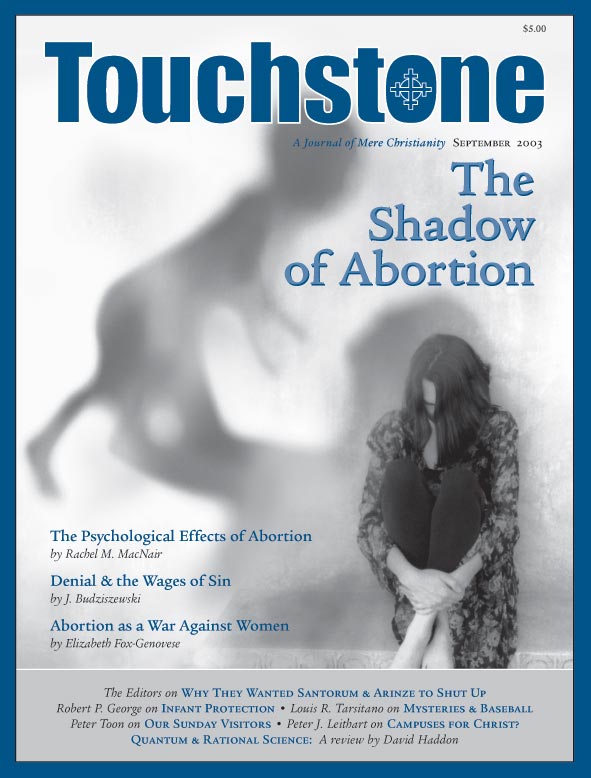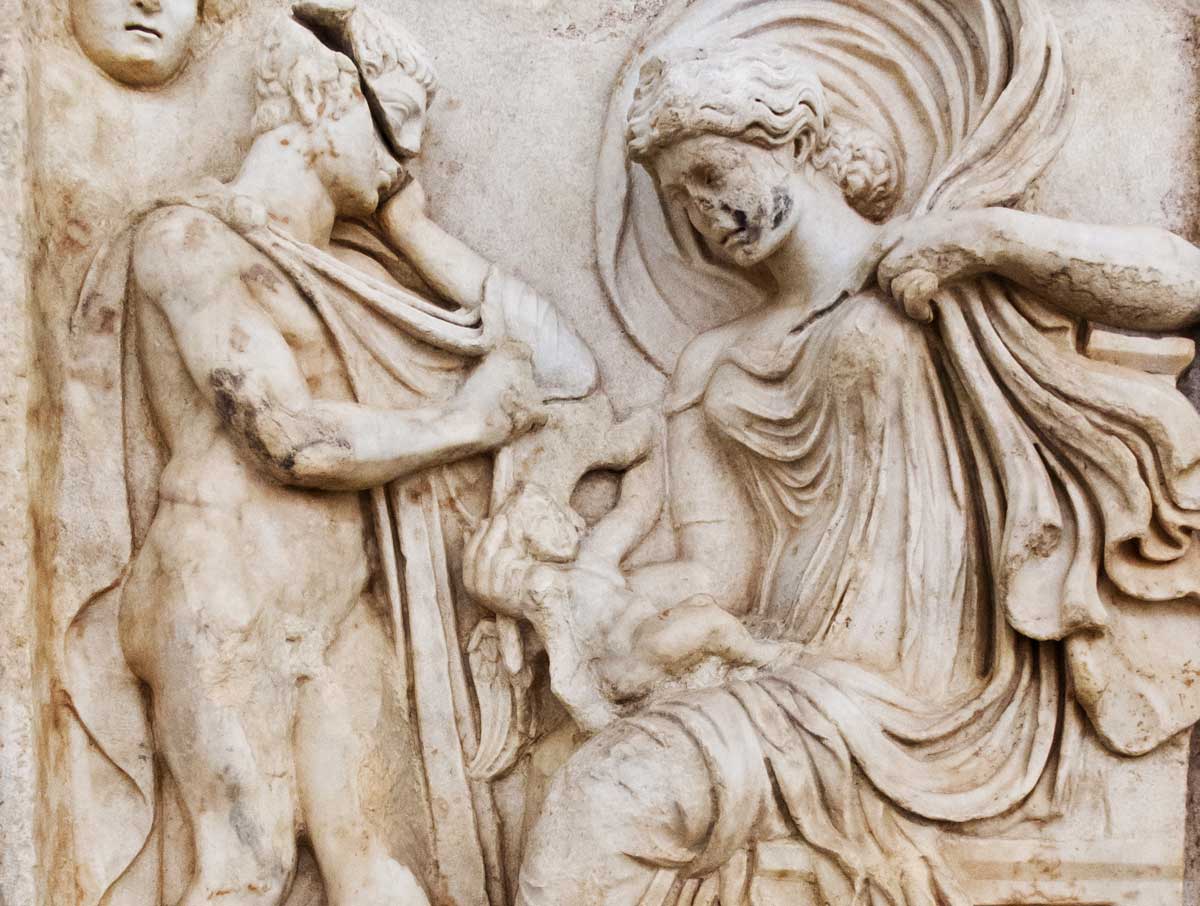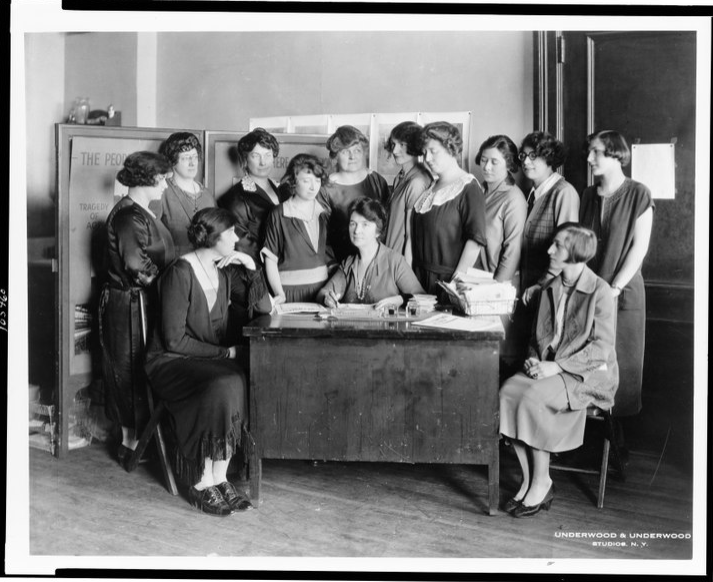The Nightmares of Choice
The Psychological Effects of Performing Abortions
by Rachel M. MacNair
“I have fetus dreams, we all do here: dreams of abortions one after the other; of buckets of blood splashed on the walls; trees full of crawling fetuses,” reported Sallie Tisdale of her time as a nurse in an abortion facility. Writing in Harper’s magazine, she told of dreaming that two men grabbed her and dragged her away.
“Let’s do an abortion,” they said with a sickening leer, and I began to scream, plunged into a vision of sucking, scraping pain, of being spread and torn by impartial instruments that do only what they are bidden. I woke from this dream barely able to breathe and thought of kitchen tables and coat hangers, knitting needles striped with blood, and women all alone clutching a pillow in their teeth to keep the screams from piercing the apartment-house walls.
It is not joyful or easy work. “There are weary, grim moments when I think I cannot bear another basin of bloody remains, utter another kind phrase of reassurance,” she wrote. “. . . I prepare myself for another basin, another brief and chafing loss. ‘How can you stand it?’ Even the clients ask. . . . I watch a woman’s swollen abdomen sink to softness in a few stuttering moments and my own belly flip-flops with sorrow.”1
What is the emotional impact of doing abortions on the people who do them? Those who do them have written and said enough to show that it is no ordinary medical procedure. Some, like Tisdale, suffer nightmares. Others suffer many of the other symptoms associated with Posttraumatic Stress Disorder (PTSD), once called “shell shock” and “battle fatigue.”2 The practice of medicine, of healing, should not give you nightmares, should not leave you shell-shocked.
In the following, only pro-choice doctors and nurses and official medical publications will be quoted, except for the two doctors quoted at the end. Their belief that dealing constantly with abortion was an unusual and significant source of stress, more so than ordinary medicine, did not by any means come from opposition to abortion.
Their Trauma
Remarkably little study has been done of the doctors, nurses, counselors, and other staff in abortion facilities. Only two scientific studies that look at a large number of people have been done by researchers who did not work in the abortion field. One (by M. Such-Baer) appeared in Social Casework in 1974 and the other (by K. M. Roe) in Social Science and Medicine in 1989.
Both studies were done by people in favor of legal abortion, yet they both note the high prevalence of symptoms that fit the condition now called Posttraumatic Stress Disorder (PTSD). The study published in 1974, before the term was adopted, noted that “obsessional thinking about abortion, depression, fatigue, anger, lowered self-esteem, and identity conflicts were prominent. The symptom complex was considered a ‘transient reactive disorder,’ similar to ‘combat fatigue’.”3
The other study listed similar symptoms: “Ambivalent periods were characterized by a variety of otherwise uncharacteristic feelings and behavior including withdrawal from colleagues, resistance to going to work, lack of energy, impatience with clients, and an overall sense of uneasiness. Nightmares, images that could not be shaken, and preoccupation were commonly reported. Also common was the deep and lonely privacy within which practitioners had grappled with their ambivalence.”4
subscription options
Order
Print/Online Subscription

Get six issues (one year) of Touchstone PLUS full online access including pdf downloads for only $39.95. That's only $3.34 per month!
Order
Online Only
Subscription

Get a one-year full-access subscription to the Touchstone online archives for only $19.95. That's only $1.66 per month!
bulk subscriptions
Order Touchstone subscriptions in bulk and save $10 per sub! Each subscription includes 6 issues of Touchstone plus full online access to touchstonemag.com—including archives, videos, and pdf downloads of recent issues for only $29.95 each! Great for churches or study groups.
Transactions will be processed on a secure server.
more on abortion from the online archives
more from the online archives
calling all readers
Please Donate
"There are magazines worth reading but few worth saving . . . Touchstone is just such a magazine."
—Alice von Hildebrand
"Here we do not concede one square millimeter of territory to falsehood, folly, contemporary sentimentality, or fashion. We speak the truth, and let God be our judge. . . . Touchstone is the one committedly Christian conservative journal."
—Anthony Esolen, Touchstone senior editor













